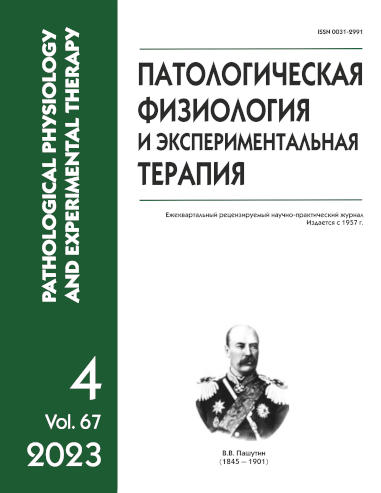The role of some genetic polymorphisms in development of СОVID-19
Abstract
Introduction. Special interest in studying the mechanisms of COVID-19 is induced by genetic markers and their polymorphic variants as well as their relationship with the clinical course and outcome of the disease. Aim. To study polymorphic variants of the IL-6, ACE and UGT1A1 genes and their association with the severity and outcome of COVID-19. Methods. Polymorphisms of the IL-6, ACE, and UGT1A1 genes were studied in three groups of patients with mild and moderate (n=200) COVID-19 and also those who died during or immediately after the disease (n=115). Genetic polymorphism was determined by real-time PCR and endpoint electrophoresis. Statistical significance of results was considerably higher for patients younger than 50 years most likely due to the absence of comorbidity. Results. The GG genotype (IL-6 gene) was almost 5 times more frequent in the group with mild disease than in the group with moderate disease. The incidence of the ACE gene DD genotype was significantly higher (55.6% vs 12.8%) in patients who died from COVID-19 than in patients who had mild disease (OR = 8.5, 95% CI, 3.08–6.91; p=0.0001). The presence of a polymorphism in the UGT1A1 rs8175347 gene revealed an almost 2-fold increase in the frequency of the *1/*28 genotype in the group of deceased compared to mild disease, contrary to expectations, since a higher baseline bilirubin in the *28/*28 genotype predicted increased mortality.






